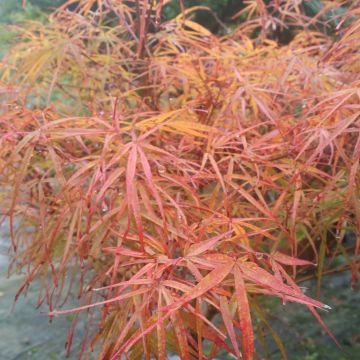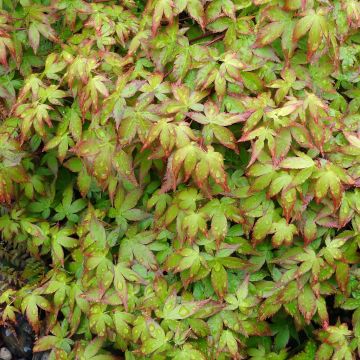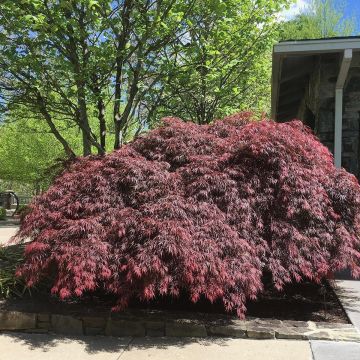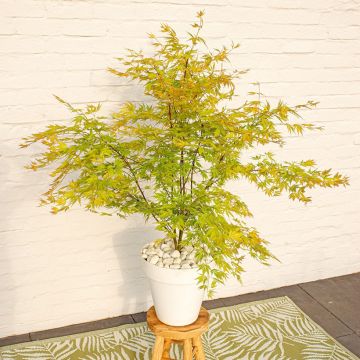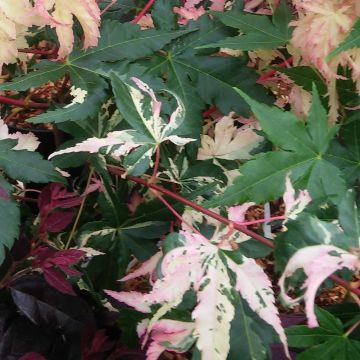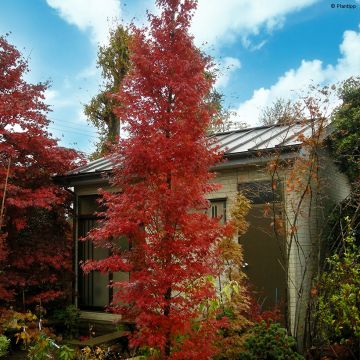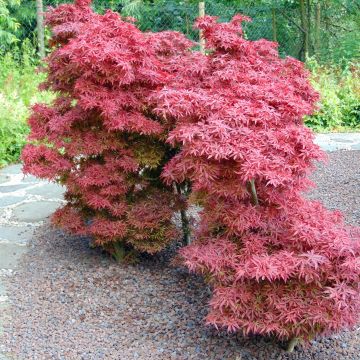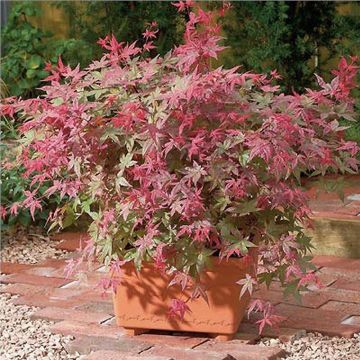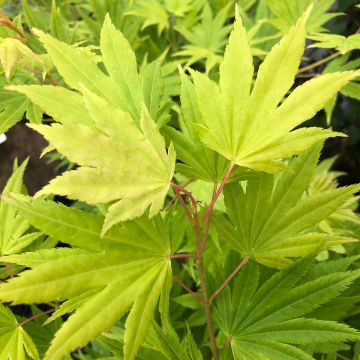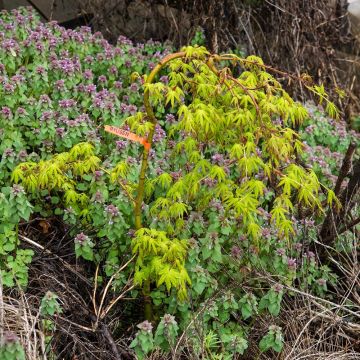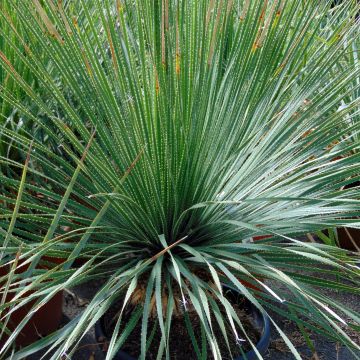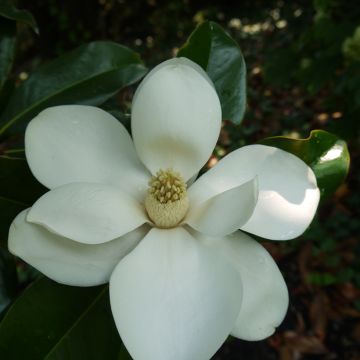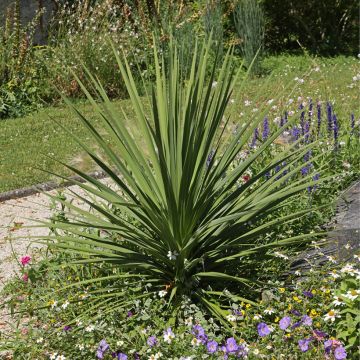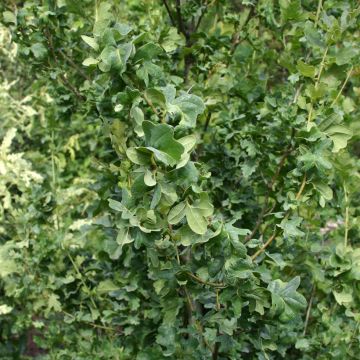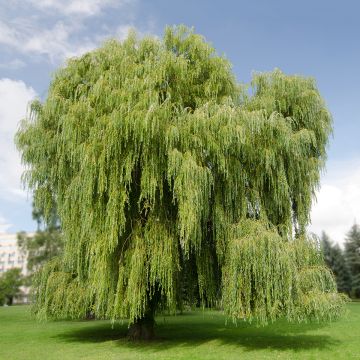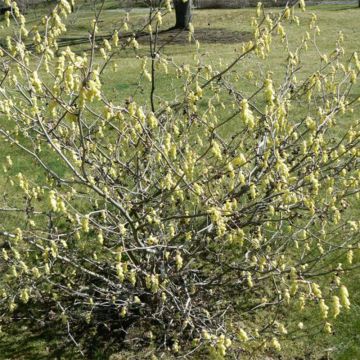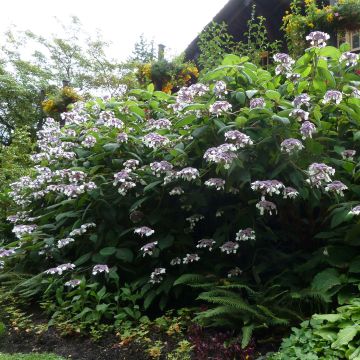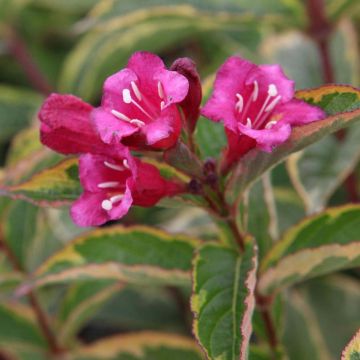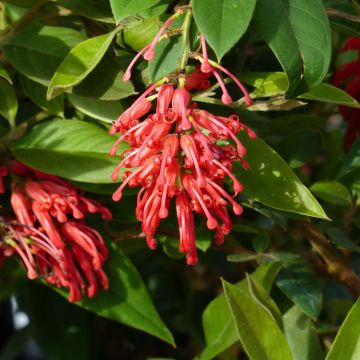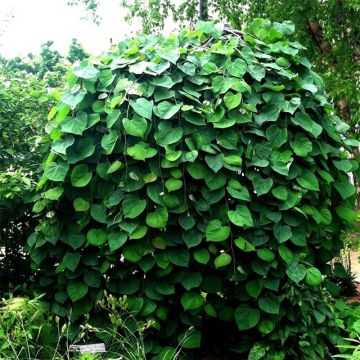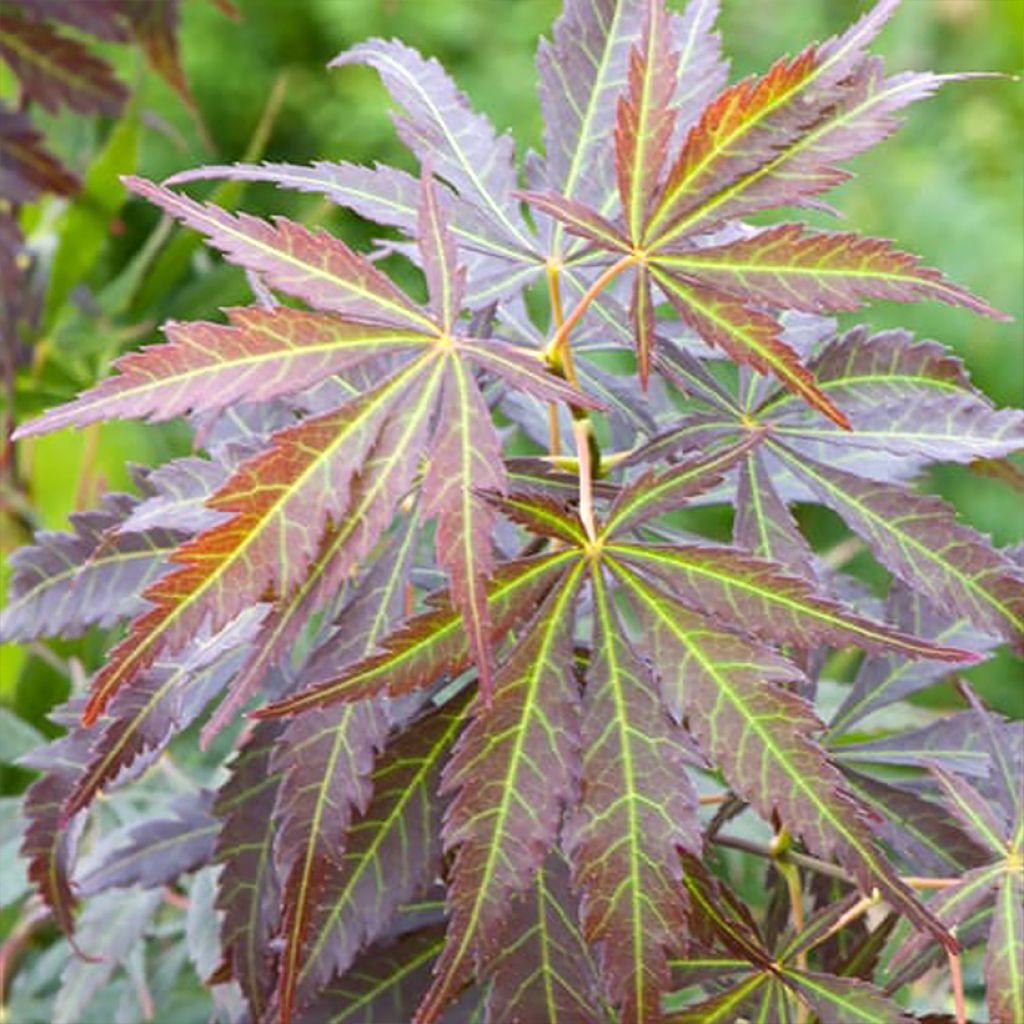

Acer palmatum Sumi-nagashi - Japanese Maple
Acer palmatum Sumi-nagashi - Japanese Maple
Acer palmatum Sumi-nagashi
This item cannot be shipped to the selected country
Delivery charge from €5.90
Oversize package delivery charge from €6.90
Delivery to Corse prohibited
More information
Schedule delivery date,
and select date in basket
This plant carries a 24 months recovery warranty
More information
We guarantee the quality of our plants for a full growing cycle, and will replace at our expense any plant that fails to recover under normal climatic and planting conditions.
From €5.90 for pickup delivery and €6.90 for home delivery
Express home delivery from €8.90.
Oversize package: home delivery by special carrier from €6.90 per order..
Express home delivery from €8.90.
Delivery to Corse prohibited: UE law prohibits the import of this plant from mainland France to Corse as part of the fight against Xylella fastidiosa. Please accept our sincere apologies.
More information
Does this plant fit my garden?
Set up your Plantfit profile →
Description
The Acer palmatum Sumi-nagashi is a variety of Japanese maple highly appreciated for its deeply cut purple foliage, its good performance in the sun, and its magnificent autumn colours. Its deeply lobed foliage evolves from red-purple in spring to dark purple in summer, before ending in a spectacular scarlet red in autumn. It forms a very dense, more or less spherical crown, carried by a generally short and branched trunk. Easy to grow in non-limestone and non-drying soil, tolerating sunny exposures as well as partial shade, this small tree allows you to create a Zen atmosphere in the garden.
Native to eastern China, Korea, and Japan, the Acer palmatum is the origin of a multitude of horticultural varieties that compete in beauty. The Japanese Maple now belongs, like all Maples, to the Sapindaceae family (formerly the Aceraceae family).
The Acer palmatum, also known as Japanese Maple due to its origin, has been cultivated in Japan for over 300 years, in gardens or trained as bonsai, arousing a true cult among the Japanese. In nature, it is a small tree approximately 7 to 8 m tall, but can exceed 10 m, with leaves divided into palmate lobes and living in moist and slightly acidic soil.
Sumi-nagashi is a small tree that can have a single trunk, often branched quite low, or multiple axes from the ground. Its spreading and slightly spreading habit in the first years takes on a rather globular shape with age, as wide as it is tall. This Japanese Maple can reach approximately 4.50 m to 5 m in all directions at maturity (and approximately 2 m to 2.50 m after ten years of planting). Its foliage is palmately lobed, meaning deeply cut, mostly into seven lobes, with visible teeth along the edges, which enhance its architectural interest. The young spring foliage emerges in shades of red-purple which, in summer, darken to almost black or purple-brown, especially when the tree is exposed to the sun, which it tolerates well. Sumi means "charcoal ashes" in Japanese, thus illustrating the summer tonality of the foliage. In partial shade, this colouration will be less pronounced, and may even evolve into a dark green tinged with bronze in low light conditions. Autumn is the preferred period as, like many Japanese Maples, it offers a beautiful spectacle when it turns into scarlet red, before the leaves fall to the ground, announcing the upcoming winter. As with most varieties, the spring flowering is quite insignificant and has no ornamental interest, but it produces winged fruits, called samaras (the famous "helicopters" of our childhood).
The Acer palmatum Sumi-nagashi is interesting for its good resistance to sunlight, as well as its relatively significant growth compared to other much more delicate varieties. It can therefore be planted as a solitary specimen without appearing ridiculous, and will also hold its place in a mixed border. However, from the start, it is necessary to leave it enough space to not hinder its development, as its growth rate is moderate. Plant low shrubs around it that will not compete with it. Chinese Azaleas (Azalea mollis) will be perfect in this role, as they also tolerate sun exposure as well as partial shade. Their beautiful tender green foliage at bud burst, and especially their abundant flowering in large white, yellow, orange, pink, or red stars, will create magnificent contrasts with your Maple. The Kalmia or Mountain Laurel is also a superb companion, too little known despite its ornamental interest. The flowering in large clusters of small flowers with an amazing shape is absolutely splendid, and the shiny dark green foliage is also highly decorative. And to extend the flowering season into summer, indulge in Hydrangeas, such as Hydrangea macrophylla Dolce Fragola, which will reward you with large strawberry pink heads, while its foliage will complement that of your Maple in shades of red in autumn.
Tip: Treat with Bordeaux mixture to prevent Verticillium attacks.
Report an error about the product description
Plant habit
Flowering
Foliage
Botanical data
Acer
palmatum
Sumi-nagashi
Aceraceae
Cultivar or hybrid
Other Japanese Maples
Planting and care
The Acer palmatum Sumi-nagashi is preferably planted in autumn, to take advantage of winter precipitation, or possibly in spring. It appreciates preferably light, neutral to acidic, humus-bearing, deep, loose and well-drained soils, in a semi-shaded position, or in morning sun and sheltered from cold and dry winds. The colours will be more vibrant if the bush receives a few hours of direct sunlight, preferably in the morning. The soil should be kept moist by mulching in summer if necessary, but should not be waterlogged, especially in winter. Apply a significant amount of organic matter every three years to ensure a good humus content in the soil. Winter pruning is limited to balancing the branches. Treat preventively against scale insects and Verticillium, a fungal disease that occurs in heavy and overly wet soils.
Planting period
Intended location
Care
This item has not been reviewed yet - be the first to leave a review about it.
Striking foliage shrubs
Haven't found what you were looking for?
Hardiness is the lowest winter temperature a plant can endure without suffering serious damage or even dying. However, hardiness is affected by location (a sheltered area, such as a patio), protection (winter cover) and soil type (hardiness is improved by well-drained soil).

Photo Sharing Terms & Conditions
In order to encourage gardeners to interact and share their experiences, Promesse de fleurs offers various media enabling content to be uploaded onto its Site - in particular via the ‘Photo sharing’ module.
The User agrees to refrain from:
- Posting any content that is illegal, prejudicial, insulting, racist, inciteful to hatred, revisionist, contrary to public decency, that infringes on privacy or on the privacy rights of third parties, in particular the publicity rights of persons and goods, intellectual property rights, or the right to privacy.
- Submitting content on behalf of a third party;
- Impersonate the identity of a third party and/or publish any personal information about a third party;
In general, the User undertakes to refrain from any unethical behaviour.
All Content (in particular text, comments, files, images, photos, videos, creative works, etc.), which may be subject to property or intellectual property rights, image or other private rights, shall remain the property of the User, subject to the limited rights granted by the terms of the licence granted by Promesse de fleurs as stated below. Users are at liberty to publish or not to publish such Content on the Site, notably via the ‘Photo Sharing’ facility, and accept that this Content shall be made public and freely accessible, notably on the Internet.
Users further acknowledge, undertake to have ,and guarantee that they hold all necessary rights and permissions to publish such material on the Site, in particular with regard to the legislation in force pertaining to any privacy, property, intellectual property, image, or contractual rights, or rights of any other nature. By publishing such Content on the Site, Users acknowledge accepting full liability as publishers of the Content within the meaning of the law, and grant Promesse de fleurs, free of charge, an inclusive, worldwide licence for the said Content for the entire duration of its publication, including all reproduction, representation, up/downloading, displaying, performing, transmission, and storage rights.
Users also grant permission for their name to be linked to the Content and accept that this link may not always be made available.
By engaging in posting material, Users consent to their Content becoming automatically accessible on the Internet, in particular on other sites and/or blogs and/or web pages of the Promesse de fleurs site, including in particular social pages and the Promesse de fleurs catalogue.
Users may secure the removal of entrusted content free of charge by issuing a simple request via our contact form.
The flowering period indicated on our website applies to countries and regions located in USDA zone 8 (France, the United Kingdom, Ireland, the Netherlands, etc.)
It will vary according to where you live:
- In zones 9 to 10 (Italy, Spain, Greece, etc.), flowering will occur about 2 to 4 weeks earlier.
- In zones 6 to 7 (Germany, Poland, Slovenia, and lower mountainous regions), flowering will be delayed by 2 to 3 weeks.
- In zone 5 (Central Europe, Scandinavia), blooming will be delayed by 3 to 5 weeks.
In temperate climates, pruning of spring-flowering shrubs (forsythia, spireas, etc.) should be done just after flowering.
Pruning of summer-flowering shrubs (Indian Lilac, Perovskia, etc.) can be done in winter or spring.
In cold regions as well as with frost-sensitive plants, avoid pruning too early when severe frosts may still occur.
The planting period indicated on our website applies to countries and regions located in USDA zone 8 (France, United Kingdom, Ireland, Netherlands).
It will vary according to where you live:
- In Mediterranean zones (Marseille, Madrid, Milan, etc.), autumn and winter are the best planting periods.
- In continental zones (Strasbourg, Munich, Vienna, etc.), delay planting by 2 to 3 weeks in spring and bring it forward by 2 to 4 weeks in autumn.
- In mountainous regions (the Alps, Pyrenees, Carpathians, etc.), it is best to plant in late spring (May-June) or late summer (August-September).
The harvesting period indicated on our website applies to countries and regions in USDA zone 8 (France, England, Ireland, the Netherlands).
In colder areas (Scandinavia, Poland, Austria...) fruit and vegetable harvests are likely to be delayed by 3-4 weeks.
In warmer areas (Italy, Spain, Greece, etc.), harvesting will probably take place earlier, depending on weather conditions.
The sowing periods indicated on our website apply to countries and regions within USDA Zone 8 (France, UK, Ireland, Netherlands).
In colder areas (Scandinavia, Poland, Austria...), delay any outdoor sowing by 3-4 weeks, or sow under glass.
In warmer climes (Italy, Spain, Greece, etc.), bring outdoor sowing forward by a few weeks.

































